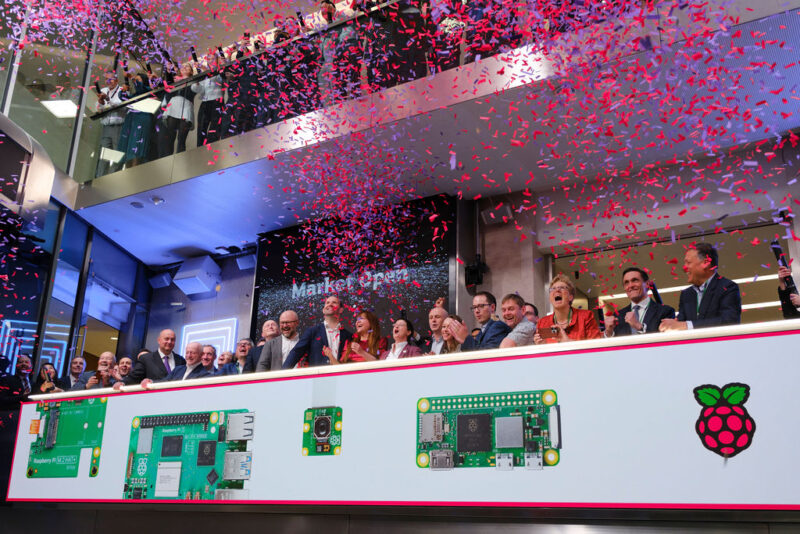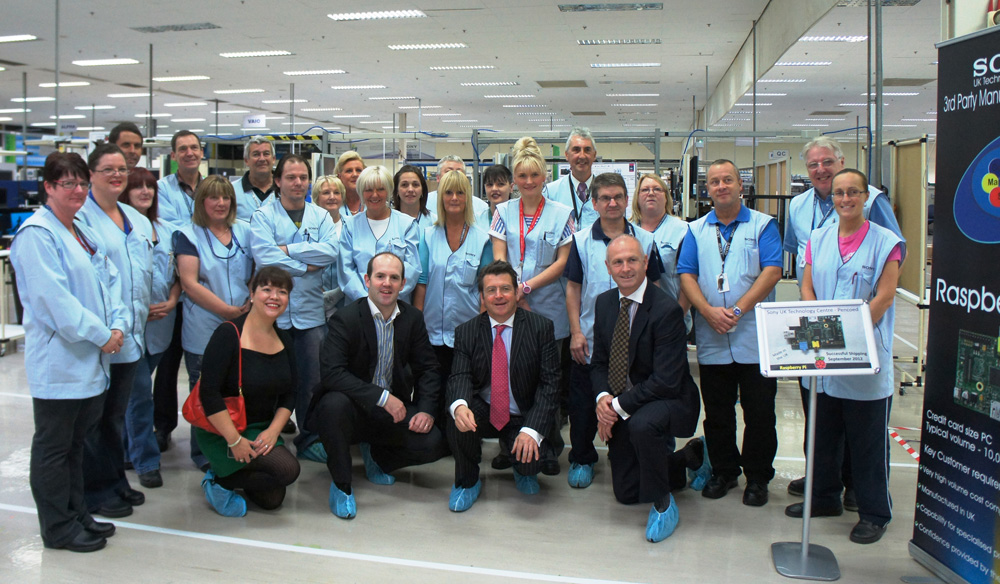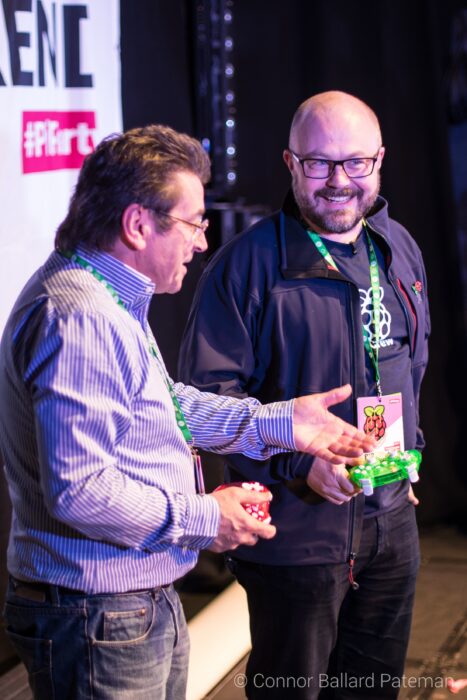A vote of thanks to our Trustees
Tuesday 11 June 2024 will be remembered as one of the most important days in the history of Raspberry Pi.

The successful introduction of the Raspberry Pi Foundation’s commercial subsidiary on the London Stock Exchange is a genuinely remarkable achievement. I want to put on record my huge congratulations and thanks to Eben Upton, Martin Hellawell, and the whole team at Raspberry Pi Holdings plc for everything they have done to make this possible.
The purpose of the IPO was to secure the next stage of growth and impact for both the Foundation and the company. We have huge ambitions and the IPO has provided both organisations with the capital we need to pursue those ambitions at pace and scale. Our Chief Executive Philip Colligan has already explained what it means for the Raspberry Pi Foundation and our mission to empower young people all over the world.
In this post, I wanted to take a moment to acknowledge the significant contribution that others have made over the years, particularly all of the Trustees who have been so generous with their time, energy, and expertise.
Founding Trustees
The Raspberry Pi Foundation was established in 2008 by six founding Trustees: Alan Mycroft, David Braben, Eben Upton, Jack Lang, Pete Lomas, and Rob Mullins. All of them deserve credit and thanks for setting us off on this incredible journey.
Alan, Eben, Jack, and Rob were all involved with the Computer Lab at the University of Cambridge. They were dealing with a decline in applications to study the computer science undergraduate course, which was a symptom of the much wider challenge that far too many young people weren’t getting access to opportunities to learn computer science, or getting hands-on with programming and electronics.
David Braben brought an industry perspective, drawing on the challenges he was experiencing with recruiting engineers and programmers at the world-leading games company that he had founded, Frontier Developments.

For Pete Lomas, he was paying forward the support and inspiration that he received from a college technician who gave him the opportunity and encouragement to experiment with programming a DEC PDP-8. That experience ultimately led Pete to establish Norcott Technologies, an electronics design and manufacturing business that he still runs today.
The founding Trustees’ original idea was to create a low-cost programmable computer — available for the price of a textbook — that would remove price as a barrier to owning a computer and inspire young people to take their first steps with computing. It took four years for the first Raspberry Pi computer to be launched, an achievement for which Eben and Pete were rightly honoured, along with other members of the team, as recipients of the prestigious MacRobert Prize for engineering.
Combining social impact and commercial success
What none of our founding Trustees could have predicted was the enormous commercial success of Raspberry Pi computers. In realising their vision of a low-cost programmable computer for education, the team created a new category of single-board computers that found a home with enthusiasts and industry, enabling the team to evolve — through hard work and creativity — into a business that is now entering a new phase as a listed company.
They also delivered on the original mission, with computer science at the University of Cambridge now being one of the most oversubscribed undergraduate courses in the country and many applicants citing Raspberry Pi computers as part of their introduction to programming.
The commercial success of Raspberry Pi has enabled the Foundation to expand its educational programmes to the point where it is now established as one of the world’s leading nonprofits focused on democratising access to computing education, and is benefiting the lives of tens of millions of young people already.
It takes a village
While no-one really knows the origin of the proverb ‘It takes a village to raise a child’, we can all recognise the truth in that simple statement. It applies just as much for endeavours like Raspberry Pi.
Over the years, Raspberry Pi has been a genuine team game. Employees in the Foundation and our commercial subsidiary, advisers, partner organisations and supporters, volunteers and community members have all played a crucial role in the success of both the company and the Foundation.

Over the years there have been 21 Trustees of the Foundation, bringing an incredible range of skills and experience that has elevated our ambitions and supported the teams in both the Foundation and the company.
All of our Trustees have provided their time and expertise for free, never receiving any financial benefit for their contribution as Trustees.
Serving as a Trustee of a charity is a serious business, with significant responsibility and accountability. While many charities have commercial operations, there is no doubt that the scale and complexity of Raspberry Pi’s commercial business has placed significant additional responsibilities on all of our Trustees.
I especially want to pay tribute to my predecessors as chair of the Board of Trustees: Jack Lang, one of our founding Trustees, who sadly passed away this year; and David Cleevely, who continues to support our work as a Member of the Foundation. Both Jack and David played a particularly important part in the success of Raspberry Pi.
Welcoming our new Trustees
As we enter this new phase for the Foundation’s relationship with Raspberry Pi Holdings Ltd, we are delighted to welcome three new Trustees to the Board:
- Andrew Sliwinski is a VP at Lego Education, formerly co-director of Scratch @ MIT, ex-Mozilla, and founder of DIY.org. Andrew is a technologist and maker with a deep understanding of education systems globally.
- Laura Turkington leads global partnerships and programmes at EY, and was previously at Vodafone Foundation. Laura has extensive global experience (including Ireland and India), including supporting large-scale initiatives on digital skills, computing education, and AI literacy.
- Stephen Greene is the founder and CEO of Rockcorps and the former chair of the National Citizen Service. Stephen brings huge experience of building global volunteer movements, social enterprise, marketing (especially to young people), government relations, and education of disadvantaged youth.







No comments